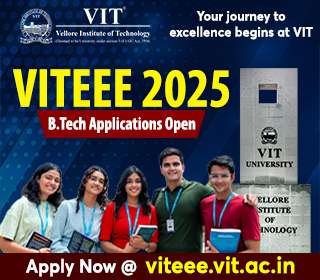An academic programme called Computer Science Engineering (CSE) unifies the fields of computer science and engineering. The most popular course among students is this one. Despite the course’s wide range of topics, it places a strong focus on networking and computer programming fundamentals. Computation, algorithms, programming languages, programme design, computer software, computer hardware, and other topics are covered in the course.
- Career scope of computer science engineering
- Qualifications for Computer Science Engineering
- Computer Science Engineering Requirements
- Syllabus for computer science and engineering
- Structure of a basic UG CSE programme
- The above can further be broken down into
- Top Colleges In India Offering Computer Science Engineering Courses
- Top Companies Hiring Computer Science Engineering Professionals
- Frequently Asked Questions

The design of individual microprocessors, personal computers, and supercomputers, as well as the creation of the software that runs them, are all tasks performed by computer science engineers.
The fields of computer science engineering are offered at the undergraduate and graduate levels by numerous technological institutions both in India and overseas. These institutions offer BTech and MTech programmes in computer science . The design, implementation, and administration of information systems involving computer hardware and software are topics covered in these courses for students.
NIRF top engineering colleges 2023
Career scope of computer science engineering
Engineers that specialize in computer science have a variety of career options. Candidates following this programme do, however, have a variety of other specializations to choose from, such as telecommunication, web design, computer hardware and software implementation and maintenance, etc.
Data scientists, computer programmers, systems analysts, hardware engineers, software developers, system engineers, IT consultants, system designers, networking engineers, web developers, database administrators, mobility testers, programmers, e-commerce experts, and software testers are among the roles that these experts can fill.
ENTRANCE EXAM QUESTIONS
Qualifications for Computer Science Engineering
Find the basic eligibility criteria for computer science programmes at the undergraduate and graduate levels below:
- Candidates must have taken the Class 12 test from a recognized board with Physics, Chemistry, and Mathematics as their core courses in order to be eligible for the BTech in CSE programme. Additionally, candidates must have received a minimum cumulative grade in the aforementioned disciplines of 60%.
- Candidates must have successfully earned a BTech degree in the same specialization with a passing grade to be eligible for an MTech in CSE.
download Universities/colleges cutoff
Computer Science Engineering Requirements
Candidates for a Computer Science programme should have the necessary set of abilities to succeed in the long run. The following abilities are necessary for enrolling in CSE courses:
Analytical skills |
Problem-solving skills |
Critical thinking |
Creativity |
Good Programming Skills |
Strong Data Structures and Algorithms skills |
Basic web development knowledge |
Basics of Machine Learning |
Basics of security, vulnerabilities, and cryptography |
Ability to grasp the knowledge quickly |
NIRF top engineering colleges 2023
Syllabus for computer science and engineering
Students of computer science and learn about the planning, execution, and administration of software- and hardware-based information systems. Students majoring in CSE may study a variety of subjects, including:
Take a look at the model computer science curriculum that the All India Council of Technical Education (AICTE) has listed and which any college providing the subject should follow:
ENTRANCE EXAM QUESTIONS
Structure of a basic UG CSE programme
S. No. |
Category |
Credit Breakup for CSE students |
1 |
Humanities and Social Sciences including Management courses |
12 |
2 |
Basic Science courses |
24 |
3 |
Engineering Science courses including workshop, drawing, basics of electrical/mechanical/computer, etc |
29 |
4 |
Professional core courses |
49 |
5 |
Professional Elective courses relevant to chosen specialization/branch |
18 |
6 |
Open subjects – Electives from other technical and /or emerging subjects |
12 |
7 |
Project work, seminar, and internship in industry or elsewhere |
15 |
8 |
Mandatory Courses
|
|
S. No. |
Category |
Credit Breakup for CSE students |
1 |
Humanities and Social Sciences including Management courses |
12 |
2 |
Basic Science courses |
24 |
3 |
Engineering Science courses including workshop, drawing, basics of electrical/mechanical/computer, etc |
29 |
4 |
Professional core courses |
49 |
5 |
Professional Elective courses relevant to chosen specialization/branch |
18 |
6 |
Open subjects – Electives from other technical and /or emerging subjects |
12 |
7 |
Project work, seminar, and internship in industry or elsewhere |
15 |
8 |
Mandatory Courses
|
|
download Universities/colleges cutoff
The above can further be broken down into:
Semester 1 |
Semester 2 |
Calculus |
Linear Algebra and Ordinary Differential Equations |
Chemistry I |
Modern Physics |
Introduction to computer programming |
Data Analysis and Interpretation |
Economics |
Abstractions and Paradigms in Programming |
Chemistry Lab |
Physics Lab |
Workshop Practice |
Abstractions and Paradigms in Programming |
Engineering Graphics and Drawing |
|
Semester3 |
Semester4 |
Numerical Analysis |
Environmental Studies |
Introduction to Electrical and Electronic Circuits |
Automata Theory and Logic |
Discrete Structures |
Design and Analysis of Algorithms |
Data Structures and Algorithms |
Logic Design |
Experimentation and Measurement Lab |
Software Systems Lab |
Data Structures and Algorithms Lab |
Logic Design Lab |
Semester5 |
Semester 6 |
Literature/Philosophy/Psychology/Sociology |
Artificial Intelligence |
Computer Architecture |
Implementation of Programming Languages |
Operating Systems |
Computer Networks |
Database and Information Systems |
Artificial Intelligence Lab |
Database and Information Systems Lab |
Implementation of Programming Languages Lab |
Computer Architecture Lab |
Computer Networks Lab |
Operating Systems Lab |
|
Semester 7 |
Semester 8 |
Elective 1 |
Elective 4 |
Elective 2 |
Elective 5 |
Elective 3 |
Elective 6 |
Institute Elective 1 |
Institute Elective 2 |
Semester 1 |
Semester 2 |
Calculus |
Linear Algebra and Ordinary Differential Equations |
Chemistry I |
Modern Physics |
Introduction to computer programming |
Data Analysis and Interpretation |
Economics |
Abstractions and Paradigms in Programming |
Chemistry Lab |
Physics Lab |
Workshop Practice |
Abstractions and Paradigms in Programming |
Engineering Graphics and Drawing |
|
Semester3 |
Semester4 |
Numerical Analysis |
Environmental Studies |
Introduction to Electrical and Electronic Circuits |
Automata Theory and Logic |
Discrete Structures |
Design and Analysis of Algorithms |
Data Structures and Algorithms |
Logic Design |
Experimentation and Measurement Lab |
Software Systems Lab |
Data Structures and Algorithms Lab |
Logic Design Lab |
Semester5 |
Semester 6 |
Literature/Philosophy/Psychology/Sociology |
Artificial Intelligence |
Computer Architecture |
Implementation of Programming Languages |
Operating Systems |
Computer Networks |
Database and Information Systems |
Artificial Intelligence Lab |
Database and Information Systems Lab |
Implementation of Programming Languages Lab |
Computer Architecture Lab |
Computer Networks Lab |
Operating Systems Lab |
|
Semester 7 |
Semester 8 |
Elective 1 |
Elective 4 |
Elective 2 |
Elective 5 |
Elective 3 |
Elective 6 |
Institute Elective 1 |
Institute Elective 2 |
ENTRANCE EXAM QUESTIONS
Top Colleges In India Offering Computer Science Engineering Courses
Top CSE Colleges In India |
IIT Delhi – Indian Institute of Technology |
IIT Bombay – Indian Institute of Technology |
IIT Kanpur – Indian Institute of Technology |
IIT Kharagpur – Indian Institute of Technology |
IIT Roorkee – Indian Institute of Technology |
NIRF top engineering colleges 2023
Top Companies Hiring Computer Science Engineering Professionals
TATA Consultancy |
|
Deloitte |
Cisco |
Wipro |
Oracle |
Cognizant |
Microsoft |
Infosys Technologies |
Yahoo |
IBM Global Services |
Paytm |
Accenture Services |
Flipkart |
HCL Technologies |
Sun microsystems |
Adobe |
Apple |
|
|
Hewlett and Packard |
download Universities/colleges cutoff
Frequenlty Asked Questions
Yes, Computer Science Engineering can be challenging due to its technical nature and rapidly evolving technologies. However, with dedication, practice, and continuous learning, students can excel in this field.
Internships and projects play a vital role in Computer Science Engineering as they provide practical exposure and real-world experience. They allow students to apply their theoretical knowledge, develop problem-solving skills, and gain industry insights, enhancing their employability.
Yes, Computer Science students can pursue a career in research and academia. They can pursue higher studies like Ph.D. and contribute to scientific research, innovations, and teaching in academic institutions or research organizations.













